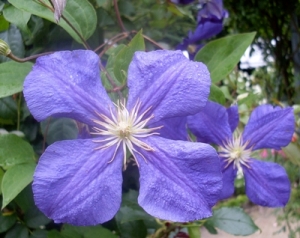ADD and ADHD are one of many Neurological Disorders!
Attention Deficit Disorder and Attention Deficit HyperActivity Disorder
Neurological Disorders are hard to understand. What more, there are very few mainstream solutions or options for helping or treating some of them, especially the most misunderstood ones.
Comorbid with and Plenty of research has explored the workings behind anxiety, stress, and depression, for example. There have also been some developments on the fronts of cognition and memory.
But of all disorders related to the brain and nerves, ADHD today is still very poorly understood in comparison. It’s still very unclear what causes it, and it’s probably even more unclear how it could be supported or remedied in any way.
WHAT IS ADHD?
ADHD stands for Attention Deficit Hyperactivity Disorder. The causes of ADHD are never the same with every case, with genetics and developments during pregnancy being the pinpointed causes today.
To determine if someone has it or not, behavior like distractedness, inattention, impulsive actions, and constant movement—even fidgeting—is quite noticeable, especially in children.
For some, this is just a natural part of personality. However, it becomes ADHD and an official disorder if these behaviors start to interfere with a child or person’s ability to function, develop, or succeed.
Issues like overlooking important details, difficulty listening, and general restlessness and hyperactivity are common. There can also be issues with forgetfulness, inability to finish tasks that are started, squirming, physical restlessness, and even intense talkativeness.
In children, hyperactivity is the most noticeable symptom, though the disorder can manifest in a whole variety of different ways. In adults, the symptoms usually become a little more subverted but can be noticeable all the same.
WHAT ARE THE MAINSTREAM THERAPIES AVAILABLE FOR ADHD?
It’s not certain what causes ADHD, nor is there much certainty over anything that can improve it or “cure” it. Thus far, there have been a few mainstream approaches that have been developed.
- Stimulant medications. Pills like amphetamines, dextroamphetamines, and methylphenidates are commonly prescribed for people and children with ADHD. While stimulating someone with ADHD may be counter-intuitive, the medications actually work to help correct chemical imbalances in the brain.
- Non-stimulant medications. There are also non-stimulant treatments available for ADHD. Anti-depressants number among these.
- Therapy. Various types of psychotherapy help improve issues with ADHD. For children, this can include behavioral therapy. For adults, relationship therapy may be an important help for managing symptoms and not letting issues interfere with quality of life.
While therapy is especially essential for helping those who live lives with ADHD, use of medications can be difficult, as they may often create unwanted side effects.
And while there is also a lower risk of addiction or dependency, on the other hand, these are risks to these medications as well—and it can be a frustrating path for those looking for as many options as possible.
Solutions that address the cause:
? Meditate
Thinking clearly is the best way to destress during a difficult time. Meditation teaches you how to focus, shut out distractions, and improve memory.
? Rest
Getting a good amount of sleep is one of the best ways to help improve your mental clarity. During sleep, your brain stores information and memories that is needed to function the next day.
Benefits of Astragalus -For All people because of it’s effect on DNA and reproduction occurring in every cell!

? Boost Immunity
For thousands of years, the astragalus root has been used to protect the immune system, from health-risking attacks. The herb contains natural antibiotic properties, that keep the body from being harmed by viral infections.
? Reduces Stress
When not treated, chronic stress and anxiety can be very dangerous. Individuals suffering from mood swings or nervous tension should try astragalus to help balance hormone levels.
? Allergy Relief
Every spring season millions of people suffer from allergies. The astragalus root, is known for reducing your allergic reactions. Chemical components found in the herb prevent the release of histamines, which can cause symptoms like runny nose and itchy eyes.
? Anti-Aging
Sometimes called the “live forever” herb, astragalus is known for its antioxidant properties that naturally slow down the signs of aging. Astragalus can also reduce the signs of aging in the face, promote regrowth of tissue, and gets rid of free radicals in the body.
ENERGY MEDICINE< HERBS AND MUSHROOM REMEDIES!
What is Bach Flower Therapy?
Bach Flower Therapy is a form of energy medicine that can be used in conjunction with traditional counseling. It can be used to help ease daily stress, address mild mood concerns, calm anxious feelings and reduce frustration and anger. While Bach Remedies can help ease any negative emotional state, intense emotional distress is best assessed and treated by a mental health professional.
This energy medicine can be used with all allopathic recommendations as well! Please consult your wholistic licensed doctor!
Bach Flowers for ADD / ADHD – Focusing, Attention and Concentration: Chestnut Bud, Clematis, White Chestnut
The following Bach flower remedies can help up with beeing inattentive or dreamy, if we have difficulties concentrating, staying on track and procrastinating and losing things, forgetting dates, …
These flowers have to do with the issue of not being present with your mind at the moment, but somewhere else.
Wow, these themes are no way referring to any of us ADDers, huh? No problem at all LOL
WHITE CHESTNUT

English: Chestnut flower (Photo credit: Wikipedia) Jonathan Billinger
- Busy mind full of thoughts
- repetitive thoughts
- repetitive sorrows and worries in the mind
- worries or fears always “ramble” in the mind
- to-do-list doesn`t stop in the mind
- ongoing conversations in the mind about discussions and talks you had with others ( “I should have said this and that” )
- thoughts are like skipping on a vinyl record ( and banging the head wouldn`t help to stop the thoughts like you would do it with a
record player ) - White Chestnut helps us to stop the thoughts that are not important right now and bother us. Therefore we can concentrate on what is important now.
Also helps us to stop thinking about things that already happened and we cannot change anymore. Even if we think a lot about what we should have done or said – it happened, we cannot change it, so now let go and relax. - helps if falling asleep is difficult because your mind is busy with thinking or worrying
CLEMATIS

Clematis
(c) TheFemmeADDon
- Inattentive/dreamy/wandering mind and the person/ drifting off into thoughts and daydreams
- daydreaming about the future, about a fantastic world, living in phantasies, living in “another world”
- not being here & now with the thoughts, but in an imaginative and better elsewhere
- not being in the present, not really here
- also when procrastinating by playing games/surfing the web / staring at the wall
- also when always forgetting things, dates, meetings, losing things because of inattentiveness and beeing dreamy
- not staying on track with what you actually started
- helps to concentrate & focusing and paying attention to the present
CHESTNUD BUD

English: Horse-chestnut bud bursting into leaf. (Photo credit: Wikipedia) Martyn Gorman
- always making the same mistakes and not learning from experiences
- unable to change a repetitive situation/ do something different next time
- always being late, always forgetting things because they are always not in a place you would find them, even if you know better
- also starting again a relationship with a partner of the same character like the one/ the others before, even if that kind of person does not match with you well
- also looking again for the same kind of job you had before, even if it wasn’t good for you
- procrastinating, always doing things in the last minute
- not being in the present, you are always one step ahead of time
- Also after leaving the house, running back to check if you really shut down electrical appliances, the stove, the iron, the computer, etc. – this behavior maybe also start to become neurotic, like you always have to get back and check
- may help with learning difficulties
Differences:
Clematis and Chestnut Bud may seem somehow similar, especially when it comes to procrastination and forgetting things.
The main theme of Chestnud Bud is making the same mistakes and not being able to change something, not being able to learn from experiences and change a situation.
Maybe you find yourself asking: Why did this happen again? Why do I always get into the same (shitty) situation?
Also, Chestnud Bud is more in the future, a step ahead of time, for example. you are leaving the house and your thoughts are already at the upcoming meeting, instead of you being in the present moment of leaving the house and do all the things and to check what is important now, now that you leave the house, like taking your keys, shutting down the iron, computer, etc.
Clematis is more of a daydreamer. Maybe you dream about a fantastic world, about how the future could be, maybe you can’t really remember where you were with your attention and thoughts.
Maybe you get asked from friends ” hello, where are you? Are you still with us?” or you get feedback that you are somehow not much present, that they have the impression you are not interested in their conversations, etc.
If you are not sure, which Remedy to take, Clematis or Chestnud Bud, try first one Remedy for a while and then the other for a while. See if you recognize any change. Choose the one that helps you more. If both help you, you may need both of them.
Mushrooms for ADD and ADHD
Kids’ Attention Gold for any age!
Supports focus and concentration
- Supports ability to pay attention
- Calms and relaxes the nervous system
- Helps reduce stress-related anxiety
Helps relieve fidgeting and restlessness
- Alcohol-free Glycerite
- 90-day, money-back guarantee
DO NON-MEDICAL APPROACHES MAKE ANY DIFFERENCE?
For the loved ones of, parents of, and those diagnosed with ADHD and autism themselves, not knowing the causes of these disorders—or how to prevent them—may be frustrating.
A source of even more disappointment, solutions beyond therapy are scant, with many medications posing daunting side effects and dependency risks. This brings up the obvious question: are there any natural alternatives to the chemical mainstays in place?
Apparently yes, there are—in the realm of lifestyle changes that can be made by both those diagnosed, by their families as well, and the use of naturally-sourced remedies that research shows may reduce the severity of issues springing from autism or ADHD.
But keep in mind: while there is hopeful research, no single cause is responsible for any diagnosis of ADHD or autism; but rather, a delicate collection or network of causes that may be different with each case.
Furthermore, no single researched cause has been deemed a definite one for either ADHD or autism—there have only been correlations. More research is being undertaken to establish stronger connections.
And while these tips are separated into two separate categories for ADHD and autism, research is starting to show that there is quite a bit of crossover when it comes to what helps reduce the chances for either disorder from occurring, as both may have very similar underlying causes.
NATURAL LIFESTYLE TIPS FOR ADHD:
- AVOIDING CERTAIN NUTRIENT EXCESSES
A review of natural complementary therapies for ADHD in 2011 found that too much of certain macronutrients—specifically carbohydrates—could be a risk factor for ADHD development in children, especially when accompanied with too little proteins and other nutrients.
While eating too much sugar and processed foods has not been proven to outright cause ADHD, studies do show that it may exacerbate or worsen issues.
Josh Axe, a leading health expert, says in his article on ADHD: “[Sugar] is the primary trigger for most children, and some adults with ADHD,” he says. Axe adds, “Some researchers and parents report worsening behavior when their child eats gluten, which may indicate sensitivity to the protein found in wheat.”
While gluten is a protein, it is found in products often considered simple and complex carbs, which may help to be avoided.
- AVOIDING CERTAIN NUTRIENT DEFICIENCIES
The same study on ADHD in 2011 found that the disorder could be linked to specific nutrient deficiencies. Namely: proteins, healthy fats, zinc, magnesium, and glutathione, a body-synthesized antioxidant.
Proteins are a big one. Amino acids, components of protein, are needed to create neurotransmitters—and lack of certain neurotransmitters have been linked to in some people with ADHD. Healthy fats—particularly omega-3 fatty acids—are also important, since they are essential to the health of neurons as well as neurotransmitter receptors.
Then there are mineral deficiencies—zinc has an especially high connection to ADHD, as it is needed for dopamine metabolism to chemically counteract ADHD, though all minerals have a delicate interrelationship with one another for each to express itself fully.
Now more than ever, with incidences of ADHD and autism on the rise, it’s important for kids to get all their adequate nutrition, as kids are most vulnerable to these changes—whereas, into adulthood, it can be too late to turn things around.
- AVOIDING ENVIRONMENTAL TOXINS
Studies have linked smoking and drinking during pregnancy to an increased risk of developing ADHD, which are discussed in this 2012 practitioner review. While these have been highlighted as very likely causes over the years (in combination with genetics), there’s quite possibly a whole lot more to toxins than that.
Functional medicine doctor and health expert Chris Kresser has this to say about environmental toxins and ADHD in his 2017 article: “Any kid who’s dealing with ADHD, I would test them for heavy metals. Particularly mercury, arsenic, lead, and cadmium,” he says.
Studies say that this also extends to pesticide exposure and even the consumption of artificial food colorings, each which have been linked to ADHD, as this review from 2011 outlines.
Each of these contaminants—from alcohol and nicotine to fake food coloring—have a way of interfering with neurotransmitters, which could in turn feed into the ADHD problem even more, though more research is needed.
WHAT NATURAL REMEDIES HOLD THE MOST PROMISE?
Is there anything that nature could provide in the realm of support, relief, and even minor therapy for ADHD?
A 2011 Alternative Medicine Review says yes when it comes to ADHD. Though more studies are needed, herbs like Rhodiola, valerian, and St. John’s wort could be helpful in dealing with some of the issues that stem from ADHD.
More studies are needed concerning herbs for autism too, though a 2016 HerbMed Pharmacology review found that botanicals like gingko, Gotu kola, and astragalus may have peripheral benefit.
But research has found the most promise in the following mushrooms and fungi, with lots more definite links to either their phytotherapeutic support for autism or ADHD—or both.
BACOPA MONNIERI
Bacopa has been a source of immense excitement in the world of herbal medicine research, with tons of studies connecting it to intriguing hopes for helping ADHD.
This includes a 2014 study on children with ADHD, which found that bacopa greatly helped with most hyperactivity and inattention symptoms, though it didn’t improve their social challenges.
Bacopa is also shown to be a neuroprotective brain tonic hailing from ancient Indian medicine, empirically seen to improve issues with cognition, memory, and mood. Some studies suggest (like this one in 2017) that it may thus be a helpful natural remedy for autism struggles with its anti-anxiety and general neuroprotective benefits.
LION’S MANE (HERICIUM ERINACEUS)
While no direct research has been established between these disorders and this medicinal fungus like it has been with bacopa, there is good scientific reason to believe that an odd mushroom, like lion’s mane, could nevertheless still be of some marginal help.
Studies have established some strong evidence that this fluffy-looking mushroom could be of benefit to symptoms relating to anxiety and depression, which may relate to both autism and ADHD. What more, lion’s mane is famous in research for its effects on focus, which may be of use for symptoms relating to ADHD especially.
CORDYCEPS (CORDYCEPS MILITARIS)
Research shows that second to lion’s mane, cordyceps is neuroprotective to the highest degree. No direct research has been undertaken to manifest a solid link between cordyceps and ADHD or autism, though the makings of a link are already clear.
After all, cordyceps touts strong anti-depressant potential, which could be an ally to those with autism; and it could also help sharpen focus to a razor edge, according to studies, which may benefit ADHD.
REISHI (GANODERMA LUCIDUM)
With its fungal brethren lion’s mane and cordyceps, reishi could also be supportive to both ADHD and autism. Some studies suggest it could have anti-depressant-like effects and neuroprotective activity that helps with focus.
HUPERZIA SERRATA
Huperzia, a Japanese moss, may as well be a nootropic fungi just like the mushrooms listed above. Studies suggest that it could help focus and cognition, a great indirect help to ADHD, though more direct studies for this will eventually be needed.


Leave a Reply